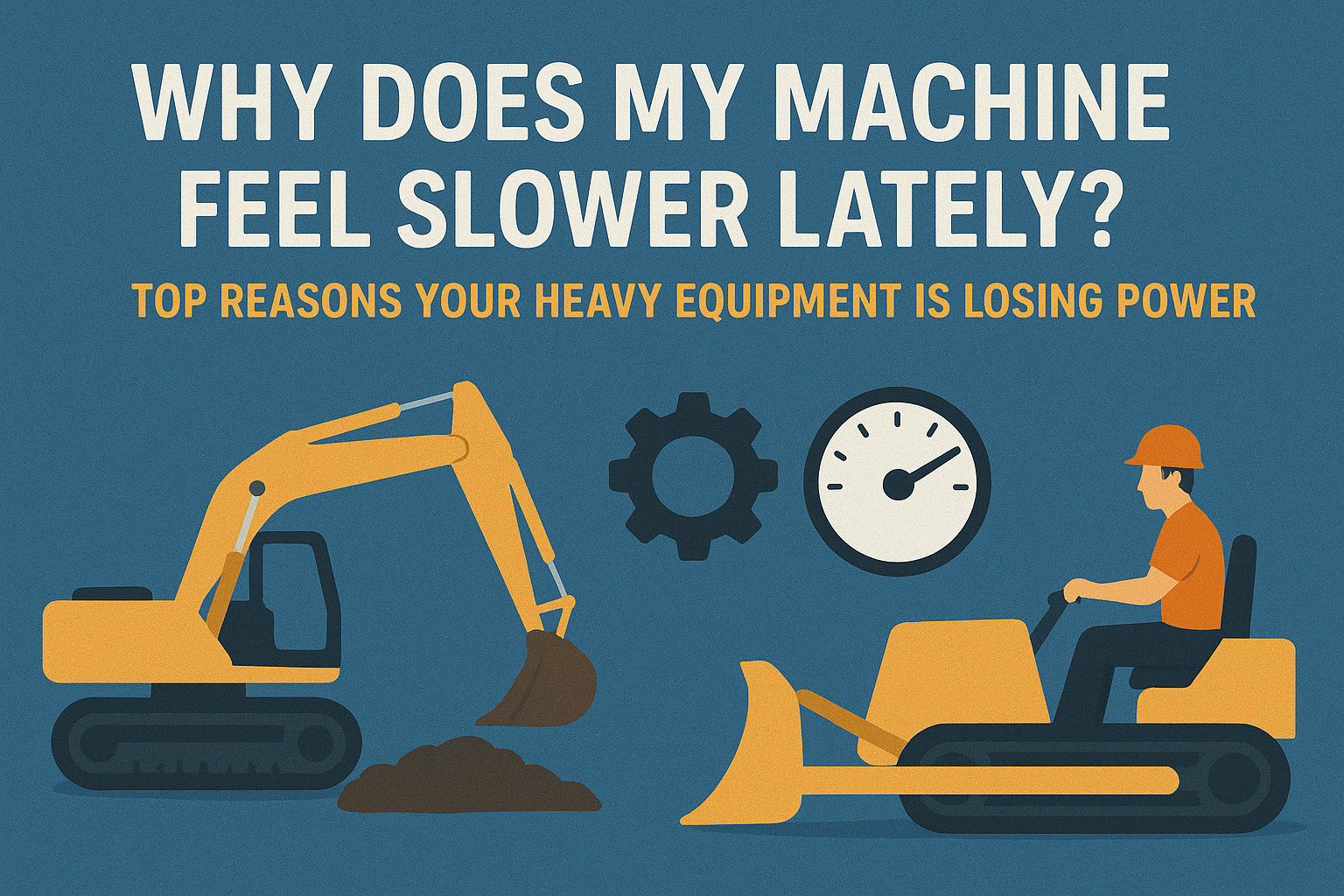Heavy Equipment Interesting Articles at HeavyEquipment.com
The Dirt Desk - Q&A
Why Does My Machine Feel Slower Lately? Top Reasons Your Heavy Equipment Is Losing Power
If you’ve been around iron long enough, you’ve experienced it:
Your excavator isn’t snapping like it used to. Your dozer feels sluggish. Your loader struggles through cycles that used to be effortless.
It’s one of the most common questions operators ask:
“Why does my machine feel like it’s losing power?”
Below is a clear breakdown of the most likely causes—plus how to diagnose them before they turn into expensive downtime.
1. Hydraulic System Issues (The #1 Culprit)
Hydraulics are the heart of most heavy equipment. When cycles slow down or breakout force drops, this is where you look first.
Common causes:
- Low hydraulic fluid
- Contaminated or old fluid
- Clogged filters
- Weak pump or worn-out seals
- Air in the system
Quick check:
If your boom, bucket, or blade moves slower even at full throttle, you’re likely dealing with a hydraulic flow issue.
2. Fuel System Problems
Modern diesels are tough—but they’re picky.
Tell-tale signs:
- Hard starts
- Loss of torque under load
- Surging or hesitation
Likely causes:
- Dirty injectors
- Fuel filter overdue for replacement
- Water or contamination in the tank
- Weak lift pump
A restricted fuel filter alone can drop performance dramatically—especially on Tier 4 engines.
3. Air Intake Restrictions
Machines need to breathe. If they can’t, you’ll feel it immediately.
Check for:
- A clogged air filter (super common in dusty jobsites)
- Crushed or collapsed intake hoses
- Turbocharger issues (lag, unusual whine, excessive smoke)
Often, replacing a $40 filter can bring a machine “back to life.”
4. Undercarriage Wear (More Power Loss Than You Think)
On tracked machines—excavators, dozers, track loaders—a worn undercarriage forces the engine and hydraulics to work harder.
Symptoms include:
- Sluggish travel
- Poor turning response
- Higher fuel consumption
If your machine feels slow when traveling but normal when digging or pushing, UC wear might be your answer.
5. Operator Technique (Yes—It Really Matters)
This isn’t about “operator error.” It’s about habits that slowly reduce productivity without anyone noticing.
Examples:
- Running in the wrong power mode
- Over-throttling
- Carrying too much load in the bucket
- Short-swing inefficiencies
- Digging against the machine instead of with it
Even veteran operators develop small habits that cost seconds—and seconds add up.
6. Software or Sensor Issues
Today’s machines rely on electronics for power management. When sensors go bad, the machine often derates itself to protect the engine.
Look for:
- Check engine or hydraulic warning lights
- Reduced RPMs
- Inconsistent power delivery
A simple re-calibration or sensor replacement may restore full performance.
7. It Might Just Be Time for a Reset
Machines get tired—just like people.
A full service that includes:
- new filters
- fresh fluids
- recalibrations
- cleaning coolers
- clearing regen issues
- greasing everything
…can transform a “weak” machine into a strong one overnight.
Tackling Power Loss Early Saves You Big Time
Heavy equipment rarely loses power overnight. It happens slowly—cycle by cycle—until suddenly you notice you’re burning more fuel and finishing fewer yards.
By catching the early signs and knowing where to look, you can prevent small issues from becoming multi-thousand-dollar repairs.

